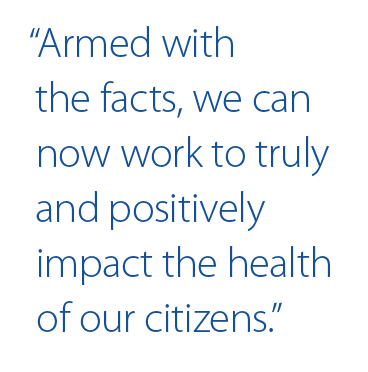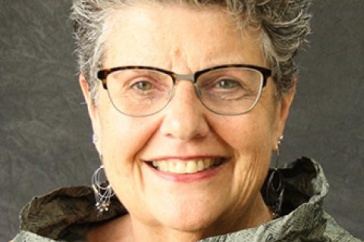
When the Granite State has a problem to solve, it repeatedly turns to University of New Hampshire expertise. By engaging with what key stakeholders say matters most to them — environment and energy, education at all levels, the economy and workforce, and healthcare, including mental health and substance abuse — UNH research exponentially improves the state’s capacity to tackle tough issues and makes New Hampshire a better place to live and work for everyone.
CLEAN WATER, HEALTHY ECOSYSTEMS

New Hampshire is a desirable place to live and to visit, which is good news for those who visit and live here. But all of this love places the state’s precious water resource “under significant development pressure,” says Bill McDowell, director of the UNH-based NH Water Resources Research Center (WRRC) and professor of natural resources and the environment. When McDowell and other WRRC scientists aren’t analyzing water samples from scores of lakes, rivers and streams around the state, they’re out working with state representatives, local town officials, scientists and planners to discuss ways to mitigate the impacts of population growth on the region’s potable water supply and ecosystem health.

Consider Blair Folts, executive director of Green Mountain Conservation Group (GMCG), a community-based organization that protects and conserves central Carroll County’s Ossipee watershed. Folts has been working with McDowell since 2000, not only availing herself of WRRC analysis but also learning how to manage watershed ecosystems. “It’s not just about knowing what organisms are in our water but also how to work within the boundaries set by ecosystems,” Folts says.
Sound science guided GMCG in preventing such marvels of “development” as a proposed racetrack, car wash, power plant and, yes, a sludge import operation from either opening altogether or skirting compliance standards. “Getting your arms around complex issues like these doesn’t happen by itself,” she says. “Together with our partners, such as UNH, we ensure the protection of shared natural resources for 12,000 people living in more than a dozen communities.”
REDUCING ARSENIC LEVELS

Environmental professionals aren’t the only ones interested in healthy drinking water. For years, health officials in the Granite State have been trying to deal with unhealthy levels of arsenic in drinking water, which has been linked to cognitive impairment and lung, bladder and skin cancers. In 2018, New Hampshire’s Department of Environmental Services (NHDES) tapped an interdisciplinary team of UNH researchers to explore the economic benefits of lowering allowable arsenic content in New Hampshire’s municipal water systems. Bob Woodward, the Forrest D. McKerley Professor of Health Economics Emeritus at UNH, led the effort.
“Monitoring and filtering for arsenic has the potential for being expensive,” Woodward says. “So it’s important to know how much people are willing to pay each month to have access to filtered water.” Collaborating with UNH economists Robert Mohr and Scott Lemos and professor of resource economics John Halstead, Woodward arrived at the relatively modest sum of $35 a month.
Their findings enabled state lawmakers to pass a bill limiting the amount of arsenic in public drinking water to half the federal limit, or five parts per billion.“ NHDES is grateful to UNH for providing sound science on arsenic,” says NHDES water division director Thomas E. O’Donovan. “Armed with the facts, we were able to change the maximum contaminant level and can now work to truly and positively impact the health of our citizens.”

FIGHTING ADDICTION

UNH is addressing an acute shortage of behavioral health workers as the opioid crisis overwhelms the state’s capacity to treat it. In 2019, UNH added a psychiatric health certificate as a post-master’s offering for nurse practitioners.
Family nurse practitioner students, such as Stephanie Penny ’20, do fieldwork in the state’s rural and underserved areas. “It’s not just about people showing up for medication,” Penny says. “Clients build their days around going to therapy and meetings. They’re dedicated to their recovery.”
EARLY CHILDHOOD WELL-BEING
According to the Annie E. Casey Foundation Kids Count report, the Granite State is first in the nation with regards to child well-being. However, the averages mask unequal access to opportunity and achievement based on where families live and how much money they earn. To bridge the gap, state education and human service leaders turned to assistant professor of human development and family studies Kimberly Nesbitt to lead a statewide project to improve the state’s early childhood system for children, families, schools and communities.

A $3.8 million grant from the U.S. Department of Health and Human Services helped Nesbitt and her team identify where the need is and draft a preliminary plan to address it. And a new $26.8 million grant from the same federal agency will build on the team’s success and support their leadership of the state’s plan to ensure children and families of New Hampshire are healthy, learning and thriving.
SCIENCE AND MATH EDUCATION FOR RURAL SCHOOLS
Across campus, education professors Leslie Couse and Emilie Reagan and their team at Teacher Residency for Rural Education (TRRE) are tackling another challenge: meeting the need for science and math teachers in rural schools. Funded by the U.S. Department of Education, TRRE is a 15-month master’s degree program for future elementary or secondary math or science teachers in rural, high-need schools in New Hampshire.
With dozens of partnership schools in 13 school districts statewide, TRRE offers a textbook case in the value of beyond-textbook learning. At White Mountains Regional High School in Coos County, for instance, TRRE graduate and current teacher Aidan Wiggin ’19G uses a nearby field set against snow-capped Mount Washington for a survival project. “My students have to figure out how to build a shelter, cook food and build a water filtration system, using materials mostly found on the spot,” says Wiggin.

Couse says rural life requires smarts and an ability to use math and science to engineer solutions, from planting and rotating crops to animal care and understanding the impact of weather on crops. “Our mountains, lakes, rivers and forests are educational resources, not liabilities,” she says.
DATA YOU CAN COUNT ON
If you ask Steve Reno “what is New Hampshire?” he’ll tell you it’s a website maintained by the Carsey School that furnishes the Granite State with “a reliable set of well-researched, credible data that policymakers can use to ground themselves in a common set of facts about where we are as a state, where we have been and what challenges we may face based on our analysis.”

Reno should know. The former chancellor of the University System of New Hampshire and current executive director of Leadership New Hampshire used to edit and review “What is New Hampshire?” — first a book and now online. “It poses a question rather than offers an answer, i.e., This is New Hampshire, precisely because it leaves the decision-making to the businesspeople, law makers, educators and citizens who use it,” Reno says. And use it they have, to help guide policy-making that addresses challenges such as wage stagnation, educational upgrading, an aging workforce, housing affordability, poverty, aging infrastructure and other issues.
Contributor and Carsey School founding director Michael Ettlinger says that over the years, this report has “furnished a common understanding of the facts that is an imperative to coming together to tackle challenges facing our state.”
-
Written By:
Dave Moore | Freelance Writer



















































